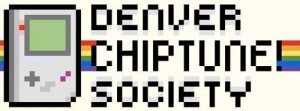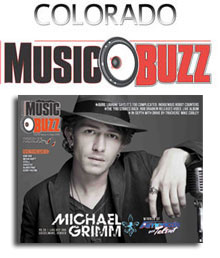Denver Chiptune Society Gives Rise to a “New Classic” Style of Music

What exactly is “Chiptune” music? Well, as it turns out, Denver has a community of musicians (and possible old-school gamer nerds) who would love to tell you all about it. It is genre of music made entirely with old video game sounds. CMB wanted to know more, so we went straight to the source- Denver Chiptune Society’s Eric Brown.
CMB: First things first, give us a background on chiptune music and how it came to be, for those not familiar.
DCS: Chiptune music began arguably as far back as the 70s, back when computers and consoles were built with dedicated sound chips to generate sounds and music. It has grown and evolved over these last few decades, in recent years has seen a boom in popularity largely due to the increasing availability of free (or dirt-cheap) software and hardware. Many genres of music are written in the Chiptune style, so nowadays it’s usually best to think of Chiptune as a medium rather than a music genre. It remains largely underground but has been slowly trickling it’s way into the mainstream, with retro fashions becoming popular and “8-bit sounds” in pop music.
Part of the appeal of Chiptune from an artist perspective is pushing the hardware to the absolute limits, to extract as much as possible out of such a limited sound palate, so there is a strong emphasis on composition. Another part of the appeal is the sense of nostalgia associated with the sounds, flashing back to playing Mario Bros or whatever growing up. However, there are plenty of younger kids getting into Chipmusic that don’t even have this nostalgic attachment, but can enjoy and appreciate it as an art form all on it’s own, because of its unique defining characteristics. There are obvious close ties with the video game world, but for many this association is meaningless and irrelevant.
CMB: How did the artists that make up the Denver Chiptune Society come together?
DCS: There is an inherent sense of community amongst Chiptune artists and fans alike, and once you understand the basics, you’re in the club. There’s a huge, thriving online community so when I moved here from Nashville I knew I couldn’t be the only one in town doing it. I’m honestly not sure how we came together, it was one at a time for sure but I know for a fact Craigslist was involved. Eventually we decided to form a little club to play some shows together and try to spread awareness. Little by little we’re getting our act together and doing exactly that.
CMB: So would you classify yourselves as video game nerds first, or musicians first?
DCS: Heh, I can’t speak for everyone but… we are performing artists, who enjoy writing and performing music. Don’t get me wrong, we’re definitely nerds too, you sort of have to be in some way to develop a passion for archaic computing technology… the Chiptune thing is just something that clicked with us but I wouldn’t doubt we’d all still be making music had we not discovered it. I actually spend almost zero time playing videogames myself these days (gasp!), but VG soundtracks make up a large part of my music listening library.
CMB: Any BITPARTY events coming up this summer, following the March 26 concert?
DCS: More than likely! We’re just taking things one step at a time for now, but the plan is to get to a point where we’re hosting semi-regular events (6-7 times a year) without using all the same artists over and over.
CMB: Where can I check this music out online?
DCS: There’s plenty of stuff available on every social network you can think of, but a good place to start would be the “big three” of Chipmusic netlabels: 8bitpeoples, Ubiktune and [the sadly now-defunct] Pause. All three of these labels have released insane amounts of amazing music for free, under various Creative Commons licenses. They also play a huge role in the organization of the world’s premier Chiptune events and festivals, where artists and fans from all over the globe get together to dance the night away, and to finally put a face to an Internet handle.
CMB: Walk us through the process of creating a tune.
DCS: The process varies from individual to individual, and there are many different approaches depending on which sound chip you decide you want to work with. There’s a bit of a learning curve familiarizing yourself with a new piece of software, and opening it up for the first time can be extremely daunting, but it’s a lot easier than you think to get the hang of it. With the plethora of available tutorials and information online, total artist transparency and their willingness to explain things 1-on-1 in great detail, and the copious amount of LEGALLY free software being actively developed, the only barriers to entry are your motivation and willingness to learn.
CMB: Any other info you’d like to share?
DCS: Yes! I actually started a blog called LearnToChip.com, an initiative to demystify the art of Chiptune and to help newcomers get started in the right direction. There are a few decent articles on there right now but I had to abandon it a while back due to other obligations, I intend on picking it back up and making regular updates in the next few weeks. Worth a read if you would like to learn more!
Chiptune: It’s Worth It.™
Online: facebook.com/denverchiptune
Category: Buzzworthy





